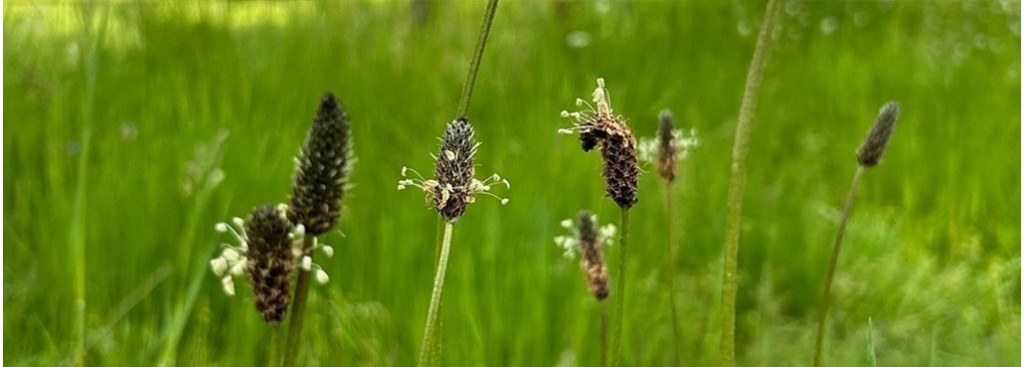Plantago lanceolata health benefits and medicinal uses

The extract of plantago lanceolata has traditionally been used in folk medicine for wound treatment and insect bites. Due to it's strong anti-inflammatory properties, Altheys considers that plantago lanceolata is the most important natural remedy to stop eczema, dermatitis and skin inflammation. The use of plantago lanceolata on skin inflammation is miraculous.
Plantago lanceolata - an environnemental weed full of health benefits
Plantago lanceolata is undoubtedly one of the most famous plants in traditional pharmacopoeia and it is well-known for having multiple and exceptional virtues. It is a perennial plant that belongs to the Plantagináceae family.

You have surely encountered plantago lanceolata (plantain) during your walks because it grows almost everywhere along the paths. Plantain is not a weed... It is a magical plant, used as a "Grandmother's remedy" from a very young age to soothe nettle stings... Plantago lanceolata leaves have been used as a wound healing remedy for centuries in almost all parts of the world and in the treatment of a number of diseases apart from wound healing.
Plantain is also called "Plantago lanceolata", "narrow plantain", "five-seam grass" or "five-ribbed grass".
It is a wild plant commonly found in France, in fields, meadows and gardens, it is very easily recognized thanks to its characteristic leaves: lance-shaped, they have five fine lines. For this reason, plantago is also called "five-seam grass" or "hare's ear". From April to October, the plant bears small green or white flowers, dangling from the end of long stems.
Plantago is undoubtedly one of the most famous plants in traditional pharmacopoeia and it is believed to have multiple and exceptional virtues. It was a sacred plant for certain northern peoples. The reputation for the therapeutic properties of plantain has spanned the ages and still persists today, particularly in the countryside where it is still widely used.
Traditional uses of plantago lanceolata
The leaves of the plant are generally used fresh or dried.
Nettle and mosquito bites, slight skin irritations: crushed fresh leaves, rubbed on the skin. Eye irritations, conjunctivitis: cooled decoction, as a compress on the eyes Dry cough, irritation: in infusion, several times a day.

Plantago lanceolata and skin inflammation
Plantago has been well known since ancient times for its anti-inflammatory properties. These include diseases related to the skin, respiratory organs, digestive organs, reproduction, the circulation, against cancer, for pain relief and against infections. Plantago contains biologically active compounds such as polysaccharides, lipids, caffeic acid derivatives, flavonoids and orthoquinone..
Ortho-quinone: a powerful principle that stops symptoms of eczema and dermatitis
Orthoquinone captures nitric oxide and prevents vessel dilation. It thus prevents redness and soothes itching of your skin. This is why it is very effective on the symptoms of eczema and dermatitis.
Altheys Laboratory maked it possible to restore all the useful principles of plantain in a concentrated extract which optimizes its effects called premix of plantago lanceolata.
Plantago lanceolata can also be advised for toothache, earache, halitosis, oral lesions, mouth sores, loose teeth, gingivitis and tonsillitis by gargling the juice of the leaves or its decoction, or dropping in the ear and applying semi hot dry leaves on the location Anti-inflammatory (protects mucous membranes and fights free radicals) Antiallergic (calms allergic reactions) Antiseptic (helps form a barrier against bacteria and viruses)
This is why Altheys has chosen to develop the Zematopic® Altheys range of skin care cosmetics with plantago extract in order to soothe your sensitive skin, prone to eczema, psoriasis, atopy and acne.
